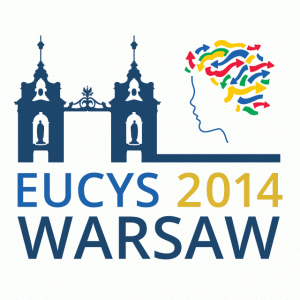The European Union Contest for Young Scientists (EUCYS) is an initiative of the European Commission that was set up in 1989 with the goal of promoting cooperation and interchange between young scientists and guiding them towards a future career in science and technology. The finals of the 26th edition of EUCYS will be held on 19–24 September in the University of Warsaw Library.
The event is an annual exhibition of the finest work developed by young scientists in many different scientific fields; it enables the best young minds of different countries to compare ideas and admire each other’s work, as well as to compete with one another at European level; it is therefore of great interest to the international and local communities, as well as the press.
The EUCYS is, furthermore, an opportunity for young scientists who have gained prestige in their home countries to meet others with similar abilities and interests, and to be guided by some of the most prominent scientists in Europe.
The outcome is a significant endorsement by the European Commission of the work and development achieved in each participant country, which it is hoped will guide and promote more and more young people to careers in science and technology.
The University of Warsaw is host organiser for the 26th EUCYS. The co-organisers are Copernicus Science Centre and Polish Children’s Fund
At the 26th finals there will be 85 projects presented by 119 contestants, representing 36 countries and the European Schools.
Participating teams are from: Austria, Belarus, Bulgaria, Czech Republic, Denmark, Estonia, Finland, France, Georgia, Germany, Hungary, Iceland, Ireland, Israel, Italy, Latvia, Lithuania, Luxembourg, Malta, Norway, Poland, Portugal, Russia, Slovak Republic, Slovenia, Spain, Sweden, Switzerland, Turkey, Ukraine, United Kingdom, European Schools, Canada, China, New Zealand, South Korea, and United States of America.
The projects are classified into the following scientific disciplines:
- Biology – 10 projects
- Chemistry – 5 projects
- Computing – 9 projects
- Engineering – 13 projects
- Environment – 7 projects
- Materials – 1
- Maths – 12 projects
- Medicine – 5 projects
- Physics – 16 projects
- Social Sciences – 7 projects



